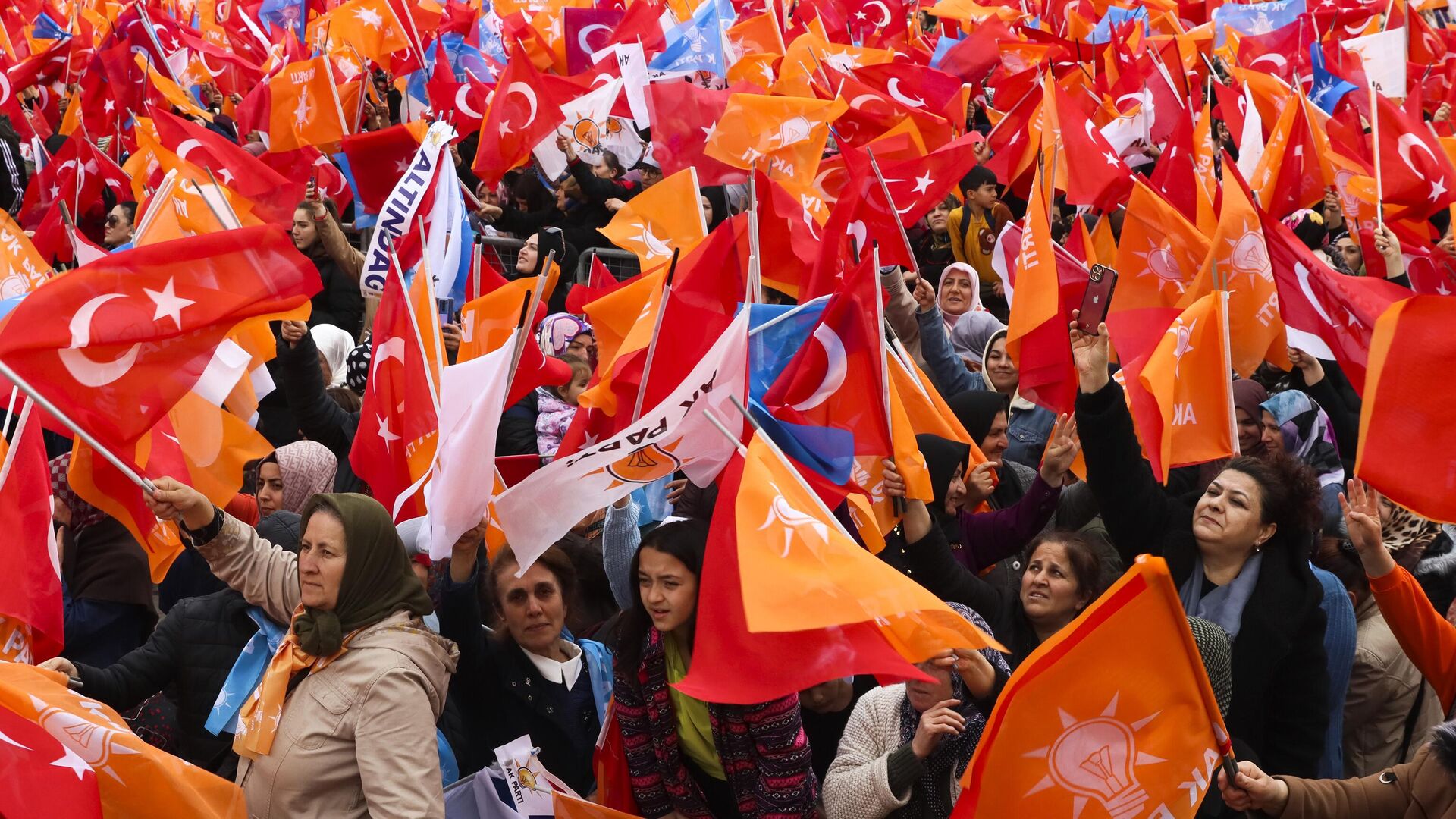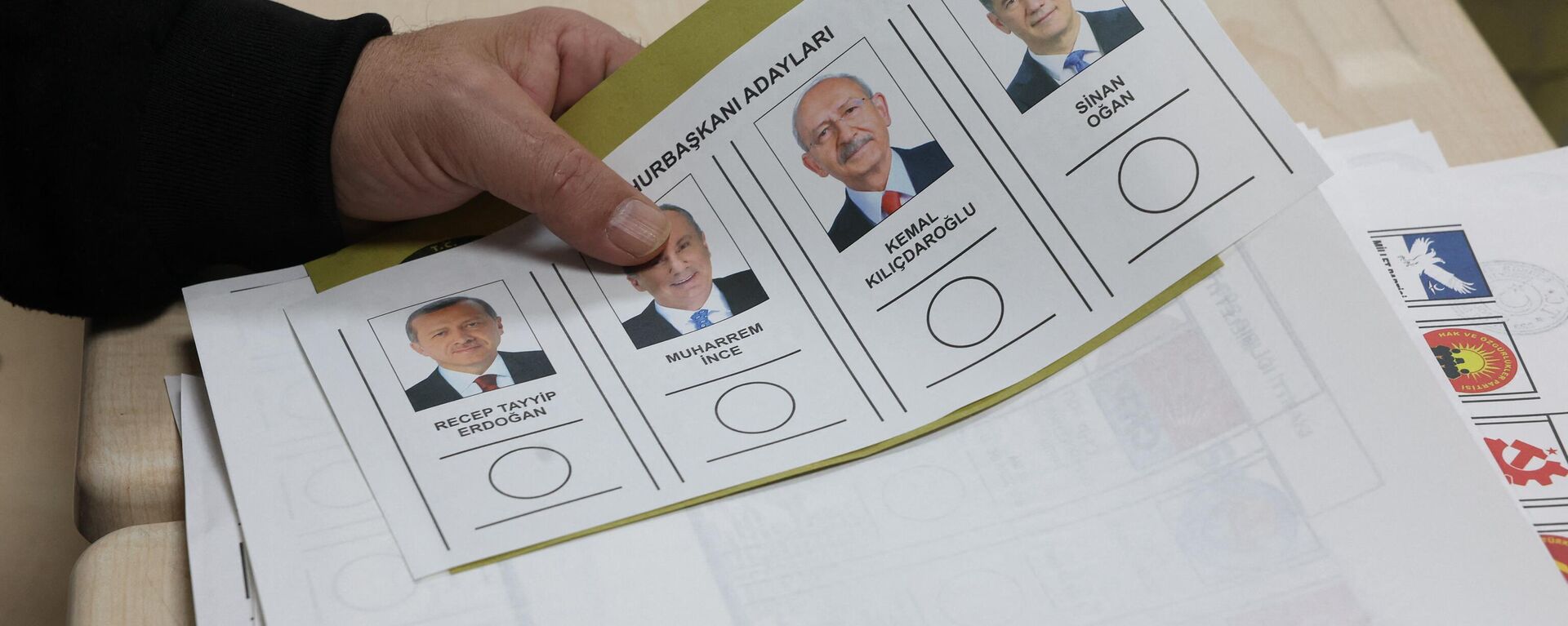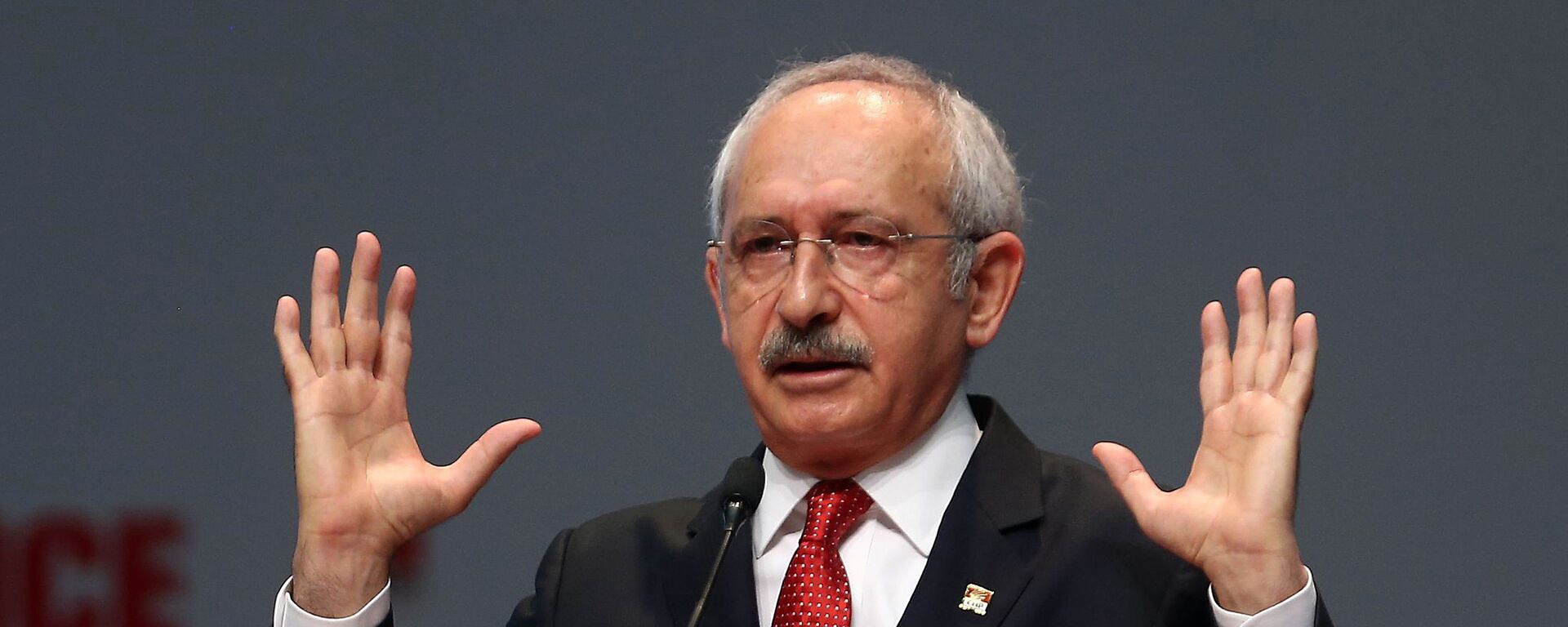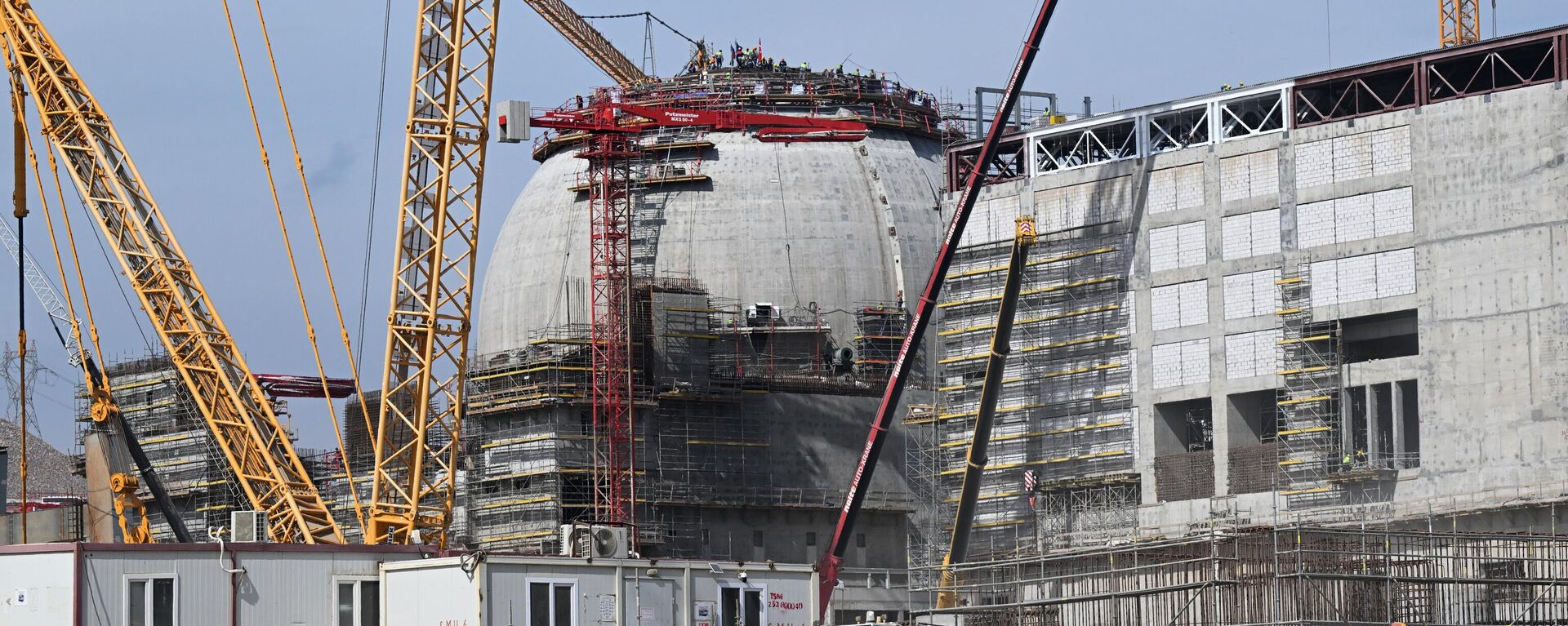https://sputnikglobe.com/20230515/turkiye-wont-turn-its-back-on-russia-whoever-wins-presidential-runoff-1110386303.html
Turkiye Won't Turn Its Back on Russia Whoever Wins Presidential Runoff
Turkiye Won't Turn Its Back on Russia Whoever Wins Presidential Runoff
Sputnik International
A second round of the Turkish election has been scheduled for May 28. Why is the unfolding political contest in Turkiye so important in terms of geopolitics?
2023-05-15T20:20+0000
2023-05-15T20:20+0000
2023-05-15T20:15+0000
middle east
analysis
us
kemal kilicdaroglu
recep tayyip erdogan
muharrem ince
turkiye
russia
turkish opposition republican people's party (chp)
nato
https://cdn1.img.sputnikglobe.com/img/07e7/05/03/1110068858_0:160:3072:1888_1920x0_80_0_0_1788d123ba4146b890b02de7f1ea577d.jpg
"From the point of view of the regional neighborhood of Turkey, this is important, because indeed, if the [Republican People's Party (CHP) leader Kemal] Kilicdaroglu wins, then [Turkish] foreign policy orientation will noticeably change," Yulia Kudryashova, associate professor at the Moscow State Institute of International Relations (MGIMO), told Sputnik. "That is, he heads the Republican People's Party, which was founded by [Mustafa Kemal] Ataturk. And the main values of this party are traditional: secularism, rapprochement with the West and the privileged position of the military in society. Accordingly, this is diametrically opposed to the position of the party headed by [President Recep Tayyip] Erdogan."Given the tight fight between Erdogan and Kilicdaroglu, some observers don't rule out the latter's potential win and subsequent changes in the Turkish political landscape.If Kilicdaroglu manages to come out on top in the runoff, Ankara may opt for further rapprochement with NATO, and may potentially try to unfreeze negotiations over its membership in the European Union, according to Kudryashova. Thus, unsurprisingly, the West is currently supporting Erdogan's opposition, the academic pointed out.There are a plethora of reasons why the US wants to drive Turkiye back in its fold, according to the academic. First, Turkiye is the most important ally for the United States within NATO, that is, the largest army in Europe among NATO members. Second, the US needs to halt Ankara's normalization with Syria which does not fit into Washington's Mideast strategy.Third, Turkiye's military cooperation with the United States has been actually frozen due to the independent and sovereign position pursued by the Turkish president. Fourth, the US wants Turkiye to join the anti-Russia sanctions regime and reduce cooperation with both Moscow and Beijing, as per the associate professor. She further presumed that if the pro-Western opposition wins, Turkiye could scale down its activities within the framework of the Shanghai Cooperation Organization (SCO) and similar Eurasian formats.Ankara's Ties With Moscow Important for TurksAlthough Kilicdaroglu promised on campaign trail to maintain working relations with Moscow, he nonetheless resorted to anti-Russia allegations last week by claiming Russia was interfering in Turkiye's general elections - something the Kremlin resolutely rejected.The crux of the matter is that ordinary Turks don't want any deterioration in mutually beneficial Russo-Turkish relations, Erim emphasized."All sane people in Turkey support the further development of Turkish-Russian relations based on the mutual interests of the two countries," the Turkish political commentator stressed."It is obvious that the main part of the Turkish people does not want any worsening, let alone breaking off, relations with Russia. Mr. Erdogan and Mr. Putin support interaction between our countries at a high level. Therefore, the Turkish public, for the most part, negatively perceives attacks similar to what Kilicdaroglu did."No matter who wins the runoff, Ankara cannot turn its back on Russia given strong trade ties between the countries and ongoing economic difficulties faced by Turkiye, according to Kudryashova."And most importantly, there is the Turkish Stream project, which gives Turkiye a completely unique chance to become a gas hub. This means discounts for the local population, the possibility of re-exporting [of gas], and the establishment of its own price for gas. There are a number of absolutely unprecedented favorable conditions for Turkiye from participation in this project. Therefore, in fact, given the difficult economic situation, [a potential new Turkish government] will not be able to reject cooperation with Russia," the academic continued.Kilicdaroglu's CHP Lost to AKP in ParliamentMeanwhile, Onur Erim expressed doubts in Kilicdaroglu's victory and referred to the fact that the People’s Alliance - formed by Erdoğan’s ruling AKP, the Nationalist Movement Party (MHP), the New Welfare Party (YRP) and the Great Union Party (BBP) won the majority of seats (325) in the 600-seat parliament."The positions of the opposition Nation Alliance in the parliament, compared with the last elections, have been shaken," Erim said. "In contrast, the People's Alliance managed to largely consolidate its seats in parliament and demonstrated a fairly high percentage of votes. This is perhaps the most remarkable moment of the election, given that the 6-party Nation Alliance enjoyed the open support of US President Biden, as well as American and many European media."
https://sputnikglobe.com/20230515/turkiye-presidential-election-what-is-known-so-far-1110369436.html
https://sputnikglobe.com/20230513/kilicdaroglus-party-wants-turkiye-to-bolster-ties-with-russia---deputy-leader-1110321426.html
https://sputnikglobe.com/20230427/atoms-for-ankara-akkuyu-npp-brings-turkiye-into-nuclear-club-1109896501.html
turkiye
russia
Sputnik International
feedback@sputniknews.com
+74956456601
MIA „Rossiya Segodnya“
2023
News
en_EN
Sputnik International
feedback@sputniknews.com
+74956456601
MIA „Rossiya Segodnya“
Sputnik International
feedback@sputniknews.com
+74956456601
MIA „Rossiya Segodnya“
turkiye elections, turkiye runoff election, turkiye erdogan and kilicdaroglu, turkish-us relatios, us president joe biden, turkish president recep tayyip erdogan, turkiye-nato relations, akp party, people's alliance got majority in parliament, turkish-russian relations
turkiye elections, turkiye runoff election, turkiye erdogan and kilicdaroglu, turkish-us relatios, us president joe biden, turkish president recep tayyip erdogan, turkiye-nato relations, akp party, people's alliance got majority in parliament, turkish-russian relations
Turkiye Won't Turn Its Back on Russia Whoever Wins Presidential Runoff
A second round of the Turkish presidential election has been scheduled for May 28 after neither of the candidates secured 50% of votes to come out on top in the first round. Why is the unfolding political contest in Turkiye so important in terms of geopolitics?
"From the point of view of the regional neighborhood of Turkey, this is important, because indeed, if the [Republican People's Party (CHP) leader Kemal] Kilicdaroglu wins, then [Turkish] foreign policy orientation will noticeably change," Yulia Kudryashova, associate professor at the Moscow State Institute of International Relations (MGIMO), told Sputnik.
"That is, he heads the Republican People's Party, which was founded by [Mustafa Kemal] Ataturk. And the main values of this party are traditional: secularism, rapprochement with the West and the privileged position of the military in society. Accordingly, this is diametrically opposed to the position of the party headed by [President Recep Tayyip] Erdogan."
It was earlier reported that Erdogan obtained 49.51% of votes, while his main challenger, Kemal Kilicdaroglu, secured 44.88%. Over 26 million people have voted for the incumbent president, over 23.8 million for his rival, and more than 2.7 million — for Sinan Ogan of the ATA Alliance.
Given the tight fight between Erdogan and Kilicdaroglu, some observers don't rule out the latter's potential win and subsequent changes in the Turkish political landscape.
If Kilicdaroglu manages to come out on top in the runoff, Ankara may opt for
further rapprochement with NATO, and may potentially try to unfreeze negotiations over its membership in the European Union, according to Kudryashova. Thus, unsurprisingly, the West is currently supporting Erdogan's opposition, the academic pointed out.
She has drawn attention to US President Joe Biden's comments made for the New York Times in January 2020, that suggested Washington should encourage Erdogan's opponents to defeat him electorally.
At a rally in Istanbul's Umraniye district on Saturday, the Turkish president recalled Biden's words and accused the opposition of playing into the US' hands.
There are a plethora of reasons why the US wants to drive Turkiye back in its fold, according to the academic. First, Turkiye is the most important ally for the United States within NATO, that is, the largest army in Europe among NATO members. Second, the US needs to halt Ankara's normalization with Syria which does not fit into Washington's Mideast strategy.
Third, Turkiye's military cooperation with the United States has been actually frozen due to the independent and sovereign position pursued by the Turkish president. Fourth, the US wants Turkiye to join the anti-Russia sanctions regime and reduce cooperation with both Moscow and Beijing, as per the associate professor.
She further presumed that if the pro-Western opposition wins, Turkiye could scale down its activities within the framework of the Shanghai Cooperation Organization (SCO) and similar Eurasian formats.
"Looking through the European media and, in a broader sense, the 'Western' ones, it emerges that the majority of Western leaders is more in tune with Kilicdaroglu's views, who in his statements claims to be launching a domestic policy that is more attentive to personal freedoms and in that international one to realign Ankara to the policies of the West," Tiberio Graziani, chairman at Vision & Global Trends - International Institute for Global Analyses, told Sputnik. "Kilicdaroglu's position seems to be more pro-Western, in the sense that he is more inclined to evaluate the current conflict in NATO's terms."
Ankara's Ties With Moscow Important for Turks
Although Kilicdaroglu promised on campaign trail to maintain working relations with Moscow, he nonetheless resorted to anti-Russia allegations last week by claiming Russia was interfering in Turkiye's general elections - something the Kremlin resolutely rejected.
"Kilicdaroglu regularly makes harsh, resonant statements that he cannot back up with any documentary evidence," Turkish political observer Onur Erim told Sputnik. "Because of this, even the CHP electorate often does not take the words of Kilicdaroglu seriously. Therefore, in my opinion, his statements about Russia did not have any impact on the voters. All his rhetoric is based solely on opposition to Erdogan, which causes a certain rejection among voters."
The crux of the matter is that ordinary Turks don't want any deterioration in mutually beneficial Russo-Turkish relations, Erim emphasized.
"All sane people in Turkey support the further development of Turkish-Russian relations based on the mutual interests of the two countries," the Turkish political commentator stressed.
"It is obvious that the main part of the Turkish people does not want any worsening, let alone breaking off, relations with Russia. Mr. Erdogan and Mr. Putin support interaction between our countries at a high level. Therefore, the Turkish public, for the most part, negatively perceives attacks similar to what Kilicdaroglu did."
No matter who wins the runoff, Ankara cannot turn its back on Russia given strong trade ties between the countries and ongoing economic difficulties faced by Turkiye, according to Kudryashova.
"Turkiye cannot radically turn its back on Russia, because it is going through a very serious economic crisis," the associate professor said. "Turkiye] has a very large balance of payments deficit. That is, Russia provides Turkey with foreign exchange earnings. It is tourism, investments, including investments of Russian companies in real estate. Turkiye's role in 'parallel imports' [to Russia] also brings it quite substantial income. And we should not forget about such large projects as, for example, the Akkuyu Nuclear Power Plant [built by Russia's Rosatom Corporation – Sputnik]. This is cheap electricity for Turkiye."
"And most importantly, there is
the Turkish Stream project, which gives Turkiye a completely unique chance
to become a gas hub. This means discounts for the local population, the possibility of re-exporting [of gas], and the establishment of its own price for gas. There are a number of absolutely unprecedented favorable conditions for Turkiye from participation in this project. Therefore, in fact, given the difficult economic situation, [a potential new Turkish government] will not be able to reject cooperation with Russia," the academic continued.
Kilicdaroglu's CHP Lost to AKP in Parliament
Meanwhile, Onur Erim expressed doubts in Kilicdaroglu's victory and referred to the fact that the People’s Alliance - formed by Erdoğan’s ruling AKP, the Nationalist Movement Party (MHP), the New Welfare Party (YRP) and the Great Union Party (BBP) won the majority of seats (325) in the 600-seat parliament.
All in all, the Nation Alliance - made up of the CHP, the İYİ (Good) Party, the Felicity Party, the Democracy and Progressive Party (DEVA), the Future Party, and the Democrat Party (DP) - jointly received 213 seats.
While the AKP alone received 269 seats, Kilicdaroglu's CHP got just 168.
"The positions of the opposition Nation Alliance in the parliament, compared with the last elections, have been shaken," Erim said. "In contrast, the People's Alliance managed to largely consolidate its seats in parliament and demonstrated a fairly high percentage of votes. This is perhaps the most remarkable moment of the election, given that the 6-party Nation Alliance enjoyed the open support of US President Biden, as well as American and many European media."
"Despite all the support, Kemal Kilicdaroglu won fewer votes than Muharrem Ince in the last elections [in 2018, Muharrem Ince ran for president from the Republican People's Party – Sputnik]. This is a very heavy blow to Kilychdaroglu, to the CHP, and to the opposition alliance as a whole. In the ranks of the opposition, no one is satisfied with the results of the first round and does not understand what's behind their failure. They built their election campaign on the presumption that the level of Erdogan's support would drop dramatically. But that did not happen," Erim concluded.





